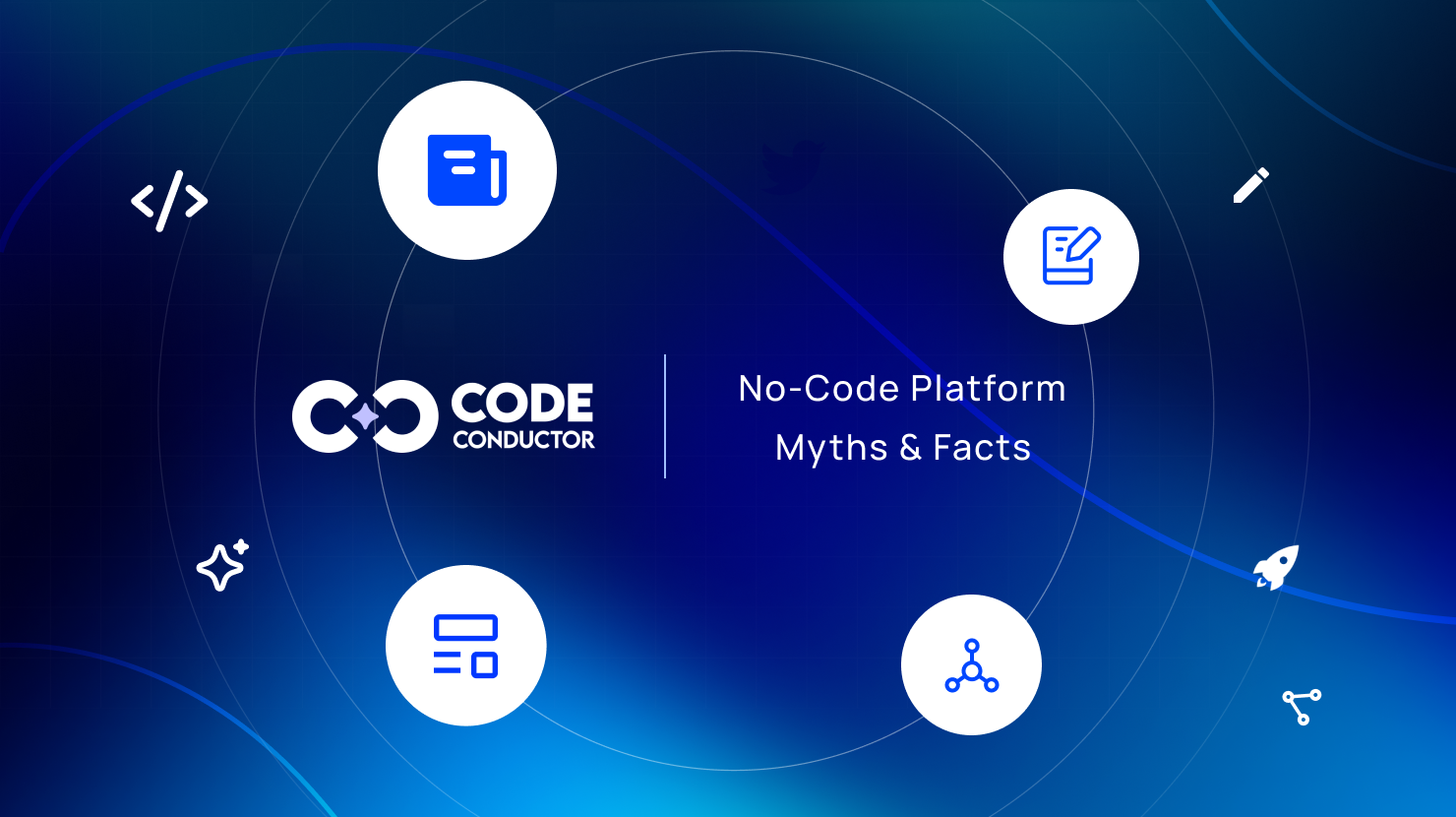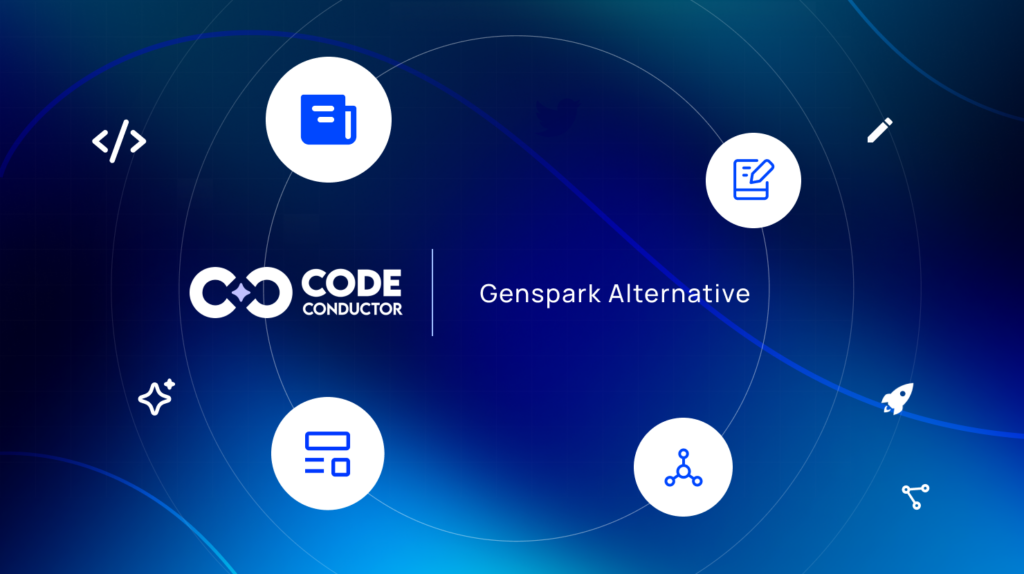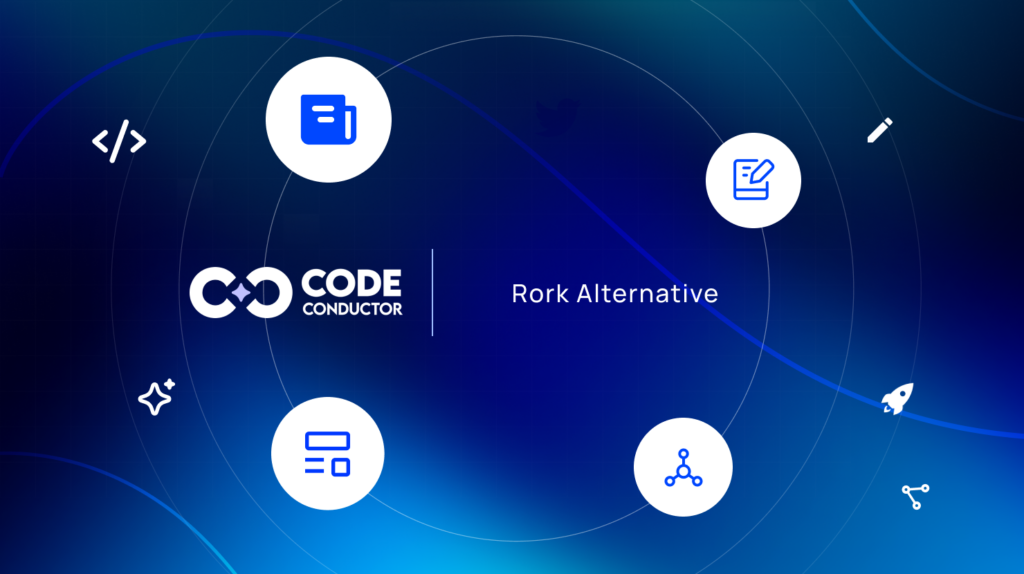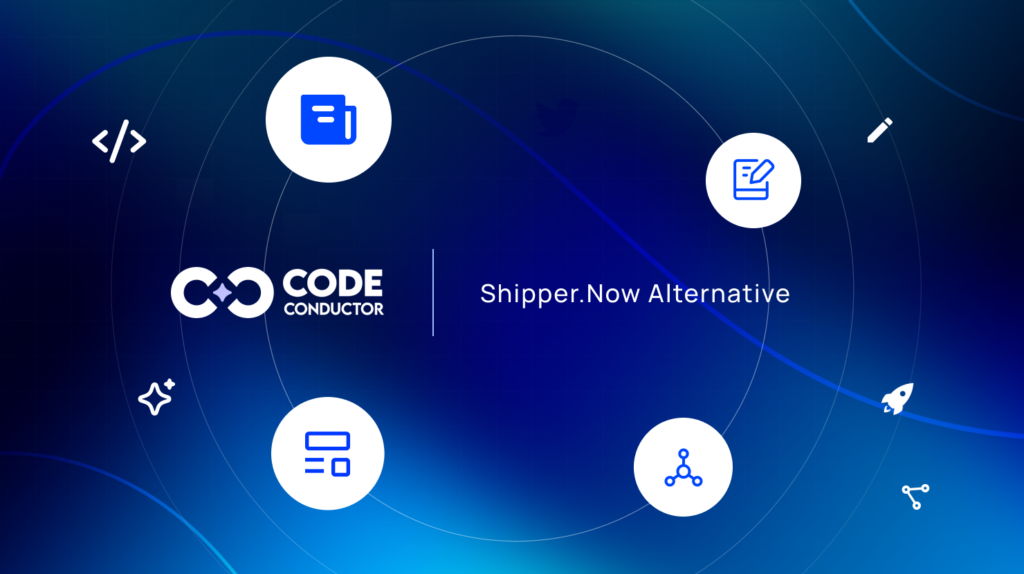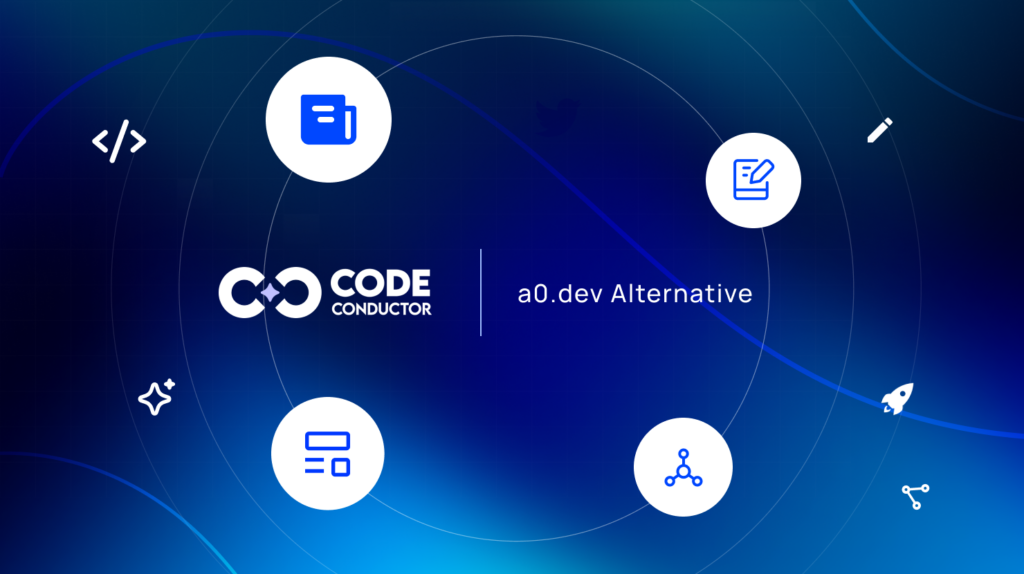Do you know how building websites and apps used to require a lot of complex coding and programming? Well, these days there’s a new trend that’s making it super easy for anyone to create digital products like mobile apps, online stores, and websites – without needing to write a single line of code! It’s called “no-code” and it’s becoming massively popular.
The crazy thing is that even though no-code platforms are blowing up, most people still have no idea what “no-code” actually means.
According to the recent report of Formstack, a whopping 82% of folks are completely clueless about this term. Can you believe that? It’s like this huge revolution is happening right under our noses, and the majority of people are unaware of it!
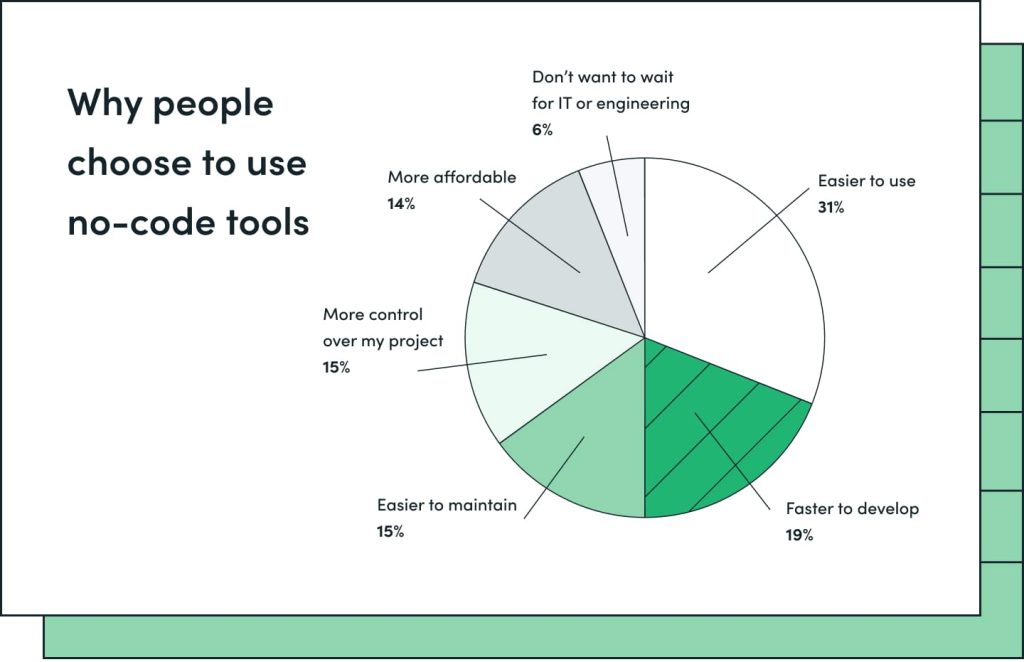
Image Credit: Formstack
There is a reason people want to use no-code platforms which are mentioned in the above image.
We are a no-code website and app builder. We’re familiar with myths and facts about no-code. There are some myths about no-code that might hold you back. But, don’t worry, we’ll debunk them all! We’ll show you how no-code can help your business or project take off faster and smarter than ever before.
In This Post
- Demystifying Common Myths of No-Code
- Myth 1: No-Code Platforms Are Only for Simple Applications
- Myth 2: No-Code Can’t Scale
- Myth 3: No-Code Means No Control
- Myth 4: Security Concerns with No-Code Platforms
- Myth 5: No-Code Is Only for Non-Technical Users
- Myth 6: No-Code Will Replace Developers
- Myth 7: No-Code Platforms Lack Customization
- Myth 8: No-Code Platforms Are Not Professional
- Myth 9: Low-Code and No-Code Are Interchangeable
- Myth 10: No-Code Applications Are Not Integrable
- Myth 11: No-Code Development is a Passing Trend
- Myth 12: No-Code Means No Learning Curve
- Myth 13: No-Code Tools Produce Cookie-Cutter Solutions
- Myth 14: No-Code Platforms Are Too Expensive
- Myth 15: No-Code Limits Career Opportunities for Developers
- Embrace the No-Code Revolution
Demystifying Common Myths of No-Code
Myth 1: No-Code Platforms Are Only for Simple Applications
Myth Debunked: The belief that no-code platforms are limited to crafting basic applications. It is a widespread misconception that significantly underestimates their potential.
The Reality: Today’s no-code platforms are incredibly robust, offering a plethora of features and functionalities corresponding to traditional coding in many ways. They are designed to handle a variety of applications, from simple internal tools to complex, customer-facing portals and integrated enterprise systems.
According to the research, 70% of new business applications will use low-code/no-code technologies by 2025., highlighting the growing trust and reliance on these platforms for more complex application development.
Myth 2: No-Code Can’t Scale
Myth Debunked: The second myth floating around is that no-code is just for small fries, not big companies with growing needs. But, the truth is something else.
The Reality: Modern no-code platforms are engineered with scalability at their core, designed to support businesses as they expand, both in terms of user base and functionality. These platforms leverage cloud-based infrastructure, which inherently allows for the flexible allocation of resources to accommodate growing demands.
The global no-code market was worth $12.17 billion in 2020 and is expected to reach $45.5 billion by 2027. This significant growth underscores the scalability and adoption of no-code/low-code platforms across various industries, demonstrating their capability to support businesses as they expand.
Myth 3: No-Code Means No Control
Myth Debunked: The myth that adopting no-code platforms results in a loss of control over the development process. And, the final application is a misconception that overlooks the nuanced capabilities of these platforms. Critics often argue that the simplicity of no-code comes at the expense of customization and flexibility, but this is far from the truth.
The Reality: No-code platforms are designed to empower users, offering a high degree of control over both the development process and the application itself. These platforms provide an intuitive, visual interface that allows users to construct applications by assembling pre-built components, logic flows, and integrations, all without writing code. This approach does not strip away control but rather abstracts the complexity of coding, making control more accessible to a broader audience.
Several no-code platforms like CodeConductor come with integration capability that enables users to customize their apps with numerous third-party integration tools.
Myth 4: Security Concerns with No-Code Platforms
Myth Debunked: A prevalent myth surrounding no-code platforms is that they inherently pose greater security risks compared to traditional coding. Unbelievers argue that the ease of use and accessibility to non-technical users might compromise application security. Such people suggest that these platforms cannot uphold the stringent security standards required for enterprise applications.

The Reality: Contrary to this myth, no-code development platforms are built with security as a foundational element. These platforms are developed to meet, and often exceed, industry security standards, providing robust security features that safeguard applications against vulnerabilities and threats. The architecture of no-code platforms is designed to ensure data integrity, confidentiality, and availability, aligning with best cybersecurity practices.
No-code platforms feature secure, built-in JSON APIs and an advanced API Builder for OpenAPI-compliant APIs. These tools prioritize API security with appropriate access controls, reflecting the platforms’ focus on security.
Myth 5: No-Code Is Only for Non-Technical Users
Myth Debunked: The next common misconception surrounding no-code platforms is that they are exclusively designed for non-technical users, such as business analysts or project managers. But, the reality is something else.
The Reality: No-code platforms are not just for non-technical users; they offer significant benefits and opportunities for developers and IT professionals as well. These platforms provide a powerful tool for rapid prototyping, application development, and digital transformation initiatives, regardless of the user’s technical expertise
Websites like TechCrunch, or ZDNet frequently cover trends in the no-code/low-code space, including statistics on usage among technical and non-technical users.
Myth 6: No-Code Will Replace Developers
Myth Debunked: Amidst the rising popularity of no-code platforms, a looming concern has emerged: the fear that no-code technology will eventually replace traditional developers. This myth stems from the belief that as no-code platforms become more sophisticated, the need for developers who write code will diminish.
The Reality: No. It will not replace developers. Rather than replacing developers, no-code platforms are transforming the development landscape, creating new opportunities for collaboration, innovation, and efficiency. These platforms are not eliminating developer roles but augmenting the development process, allowing developers to focus on more complex, strategic tasks that cannot be automated.
It clearly explains that no code can’t replace developers. Instead, it helps tech experts to be more productive.
Myth 7: No-Code Platforms Lack Customization
Myth Debunked: A prevalent myth about no-code platforms is that they severely limit customization options, forcing businesses to settle for generic, one-size-fits-all solutions. Critics argue that the drag-and-drop nature and pre-built components of no-code platforms restrict the ability to tailor applications to specific business needs.
The Reality: Modern no-code platforms are designed with flexibility and customization at their core. They offer a wide range of customization options that allow businesses to create applications that are not unique but also closely aligned with their specific requirements and branding.
Myth 8: No-Code Platforms Are Not Professional
Myth Debunked: The myth that no-code platforms are not suitable for professional use or cannot produce applications that meet professional standards is a significant misunderstanding. This misconception stems from early no-code solutions, which were often simplistic and limited in scope, leading to the belief that no-code platforms are only useful for hobbyists or small-scale projects.
The Reality: Today’s no-code platforms are robust, sophisticated, and capable of supporting the development of enterprise-grade applications. They are used by startups, mid-sized businesses, and large corporations alike to create professional solutions that drive operational efficiency, enhance customer engagement, and support digital transformation initiatives.
Myth 9: Low-Code and No-Code Are Interchangeable
Myth Debunked: A common misconception is that no-code and low-code platforms are essentially the same, interchangeable tools used for application development. This misunderstanding minimizes the distinct characteristics and intended user bases of each platform type, suggesting a one-size-fits-all approach to development that doesn’t accurately reflect the nuances of these powerful technologies.
The Reality: While both low-code and no-code platforms aim to simplify the application development process and make it more accessible, they cater to different audiences and offer varying degrees of complexity and flexibility in development.
Myth 10: No-Code Applications Are Not Integrable
Myth Debunked: A prevailing myth suggests that applications developed using no-code platforms are siloed entities, incapable of integrating with other systems, databases, or third-party services. This misconception paints no-code solutions as isolated tools that cannot communicate with the broader technological ecosystem of a business.
The Reality: Contrary to this myth, modern no-code platforms are built with integration capabilities at their forefront. They are designed to seamlessly connect with various external systems, enabling businesses to create interconnected applications that enhance operational efficiency and data coherence.
Myth 11: No-Code Development is a Passing Trend
Myth Debunked: Amid the rapid ascent of no-code platforms, some voices in the tech community have dismissed no-code development as merely a fleeting trend, a temporary solution that lacks the depth and staying power of traditional coding. This perspective underestimates the transformative impact and long-term implications of no-code technology on the software development landscape.
The Reality: Far from being a transient fad, no-code development represents a significant shift in how applications are created, deployed, and managed. It democratizes software development, making it accessible to a broader audience and accelerating digital transformation across industries.
Myth 12: No-Code Means No Learning Curve
Myth Debunked: A common misconception about no-code platforms is that they require no learning or understanding of fundamental development principles, suggesting that anyone can immediately start building complex applications without prior knowledge. This myth oversimplifies the nuances of no-code development and overlooks the importance of design thinking, process understanding, and strategic planning.
The Reality: While no-code platforms significantly lower the barrier to entry for application development, they do not eliminate the need for a learning curve. Users must understand the platform’s capabilities, best practices for design and user experience (UX), and how to effectively translate business requirements into functional applications.
Myth 13: No-Code Tools Produce Cookie-Cutter Solutions
Myth Debunked: A prevalent myth suggests that no-code platforms only produce generic, “cookie-cutter” solutions that lack originality and fail to stand out in a competitive market. This misconception stems from the assumption that the use of pre-built templates and components necessarily leads to uniformity in application design and functionality.
The Reality: Modern no-code platforms offer extensive customization options and flexibility, enabling users to create unique, tailored applications that reflect their specific business needs and brand identity. Far from being limited to one-size-fits-all solutions, no-code development allows for a high degree of creativity and differentiation.
Myth 14: No-Code Platforms Are Too Expensive
Myth Debunked: The perception that no-code platforms are prohibitively expensive and offer a poor return on investment (ROI) is a myth that overlooks the broader financial implications and cost-saving potential of adopting no-code development. Critics often cite subscription fees or platform costs without considering the savings in development time, resources, and the opportunity cost of slow-to-market traditional development processes.
The Reality: When evaluated holistically, no-code platforms can significantly reduce overall development costs and accelerate time-to-value for businesses. No-code platforms offer a compelling financial proposition by enabling rapid application development, reducing the need for specialized coding skills, and minimizing ongoing maintenance costs.
Myth 15: No-Code Limits Career Opportunities for Developers
Myth Debunked: There’s a pervasive myth that the rise of no-code platforms will limit career opportunities for traditional developers by making their coding skills obsolete. This concern paints a picture of a future where the demand for coding expertise dwindles, leaving developers out of work or forcing them into other professions.
The Reality: Rather than constricting career opportunities, the advent of no-code technology is expanding the landscape for developers, creating new roles and demand for a broader set of skills. No-code platforms are not replacing the need for developers; they are shifting the focus towards more strategic, impactful work that leverages their expertise in new ways.
Embrace the No-Code Revolution
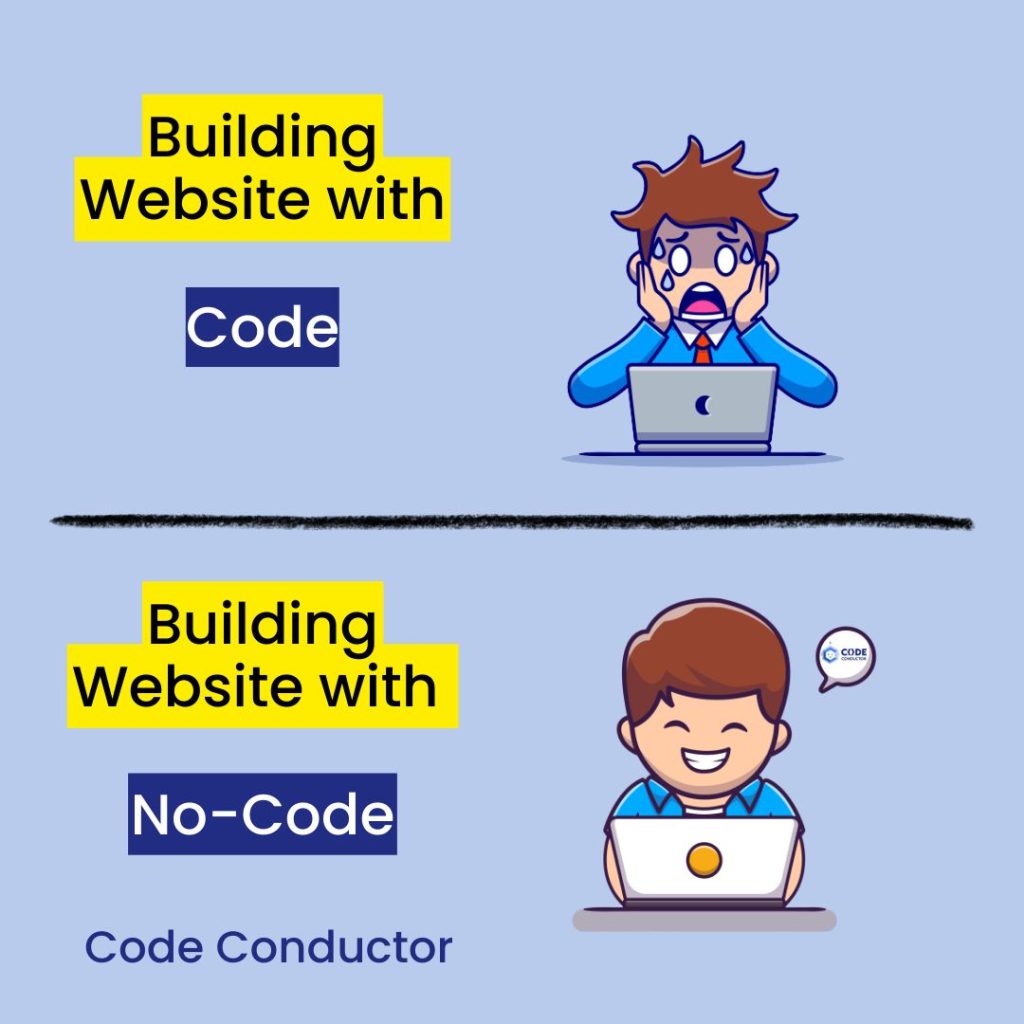
The journey through no-code myths and realities illuminates a future where app development is accessible to all, not just the coding elite. AI powered software development platforms like CodeConductor are at the forefront of this transformative movement, offering robust, scalable, and secure solutions that democratize technology creation. This isn’t just about making app development easier; it’s about opening up a world of possibilities for innovation and creativity.
If you have any other myths or confusion about no-code development, don’t let misconceptions deter you. Feel free to consult our experts today!
Read next: Benefits of No-Code Development

Founder CodeConductor

